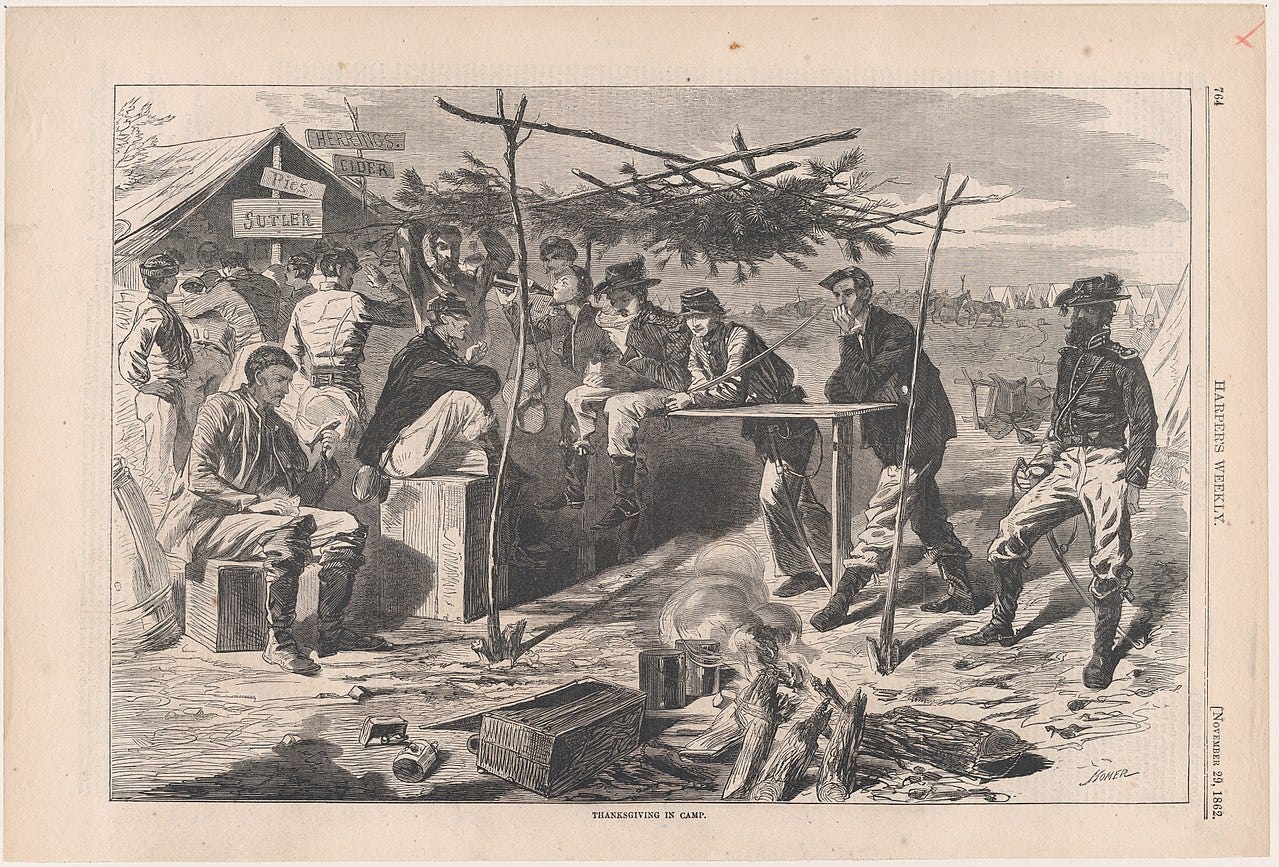'Consider, Meditate, Remember': Why We Still Give Thanks On Thanksgiving
We can celebrate and be thankful without being wracked by guilt or shame
“Thank” comes from an Old English word meaning, “consider, meditate, remember,” so it’s fitting Thanksgiving is a time for reflecting on the blessings in our lives, thanking our Creator for them, and remembering the origins and meaning of this important American holiday.
Thanksgiving Day, 1858, Winslow Homer, Harper's Weekly. Metropolitan Museum of Art/Wikimedia.
The first Thanksgiving was celebrated four centuries ago when the Pilgrims of Plymouth, religious refugees who had escaped the persecution of Europe’s religious wars, enjoyed a feast with the native Wampanoag tribe. Squanto, a friend of the tribe, helped the colonists live through their first harsh winter in the New World, teaching them crucial survival techniques.
Celebrating days of Thanksgiving remained a New England phenomenon for some time, and though George Washington released the first ever Thanksgiving Proclamation in 1789, calling on “Americans to express their gratitude for the happy conclusion to the country’s war of independence and the successful ratification of the U.S. Constitution,” it was Abraham Lincoln who first made it a national holiday.
Thanksgiving at a New England Farm House, 1871, F. A. Chapman, Harper's Weekly. New York Historical Society.
Unfortunately, this cornerstone in the American tradition is under increasing attack. In 2019, The New York Times published “The Vicious Reality Behind the Thanksgiving Myth;” in 2021, The Washington Post wrote about the “The violence at the root of our Thanksgiving myth;” and teachers have been using the holiday as an opportunity to indoctrinate their victimized students with anti-American propaganda.
The criticisms of the holiday take different forms, but a common theme is the occasion should be a time of mourning, rather than an opportunity for celebration and gratitude, because the descendants of those Pilgrims and Wampanoag ended up in conflict.
Thanksgiving Day, 1858, Winslow Homer, Harper's Weekly. Cleveland Museum of Art/Wikimedia.
But despite what the Times, Post, and activist teachers might believe, Americans recognize our country isn’t perfect. You can honestly admit America’s faults while still celebrating the nation’s virtues and its strengths.
Most Americans have done an excellent job of being honest about our own history. We appreciate the good, even as we recognize the bad, and, crucially, we put our history in context.
“We have been blessed with much of material prosperity,” President Calvin Coolidge said in his first Thanksgiving proclamation in 1923.
We shall be better able to appreciate it if we remember the privations others have suffered, and we shall be the more worthy of it if we use it for their relief. We will do well then to render thanks for the good that has come to us, and show by our actions that we have become stronger, wiser, and truer by the chastenings which have been imposed upon us. We will thus prepare ourselves for the part we must take in a world which forever needs the full measure of service. We have been a most favored people. We ought to be a most generous people. We have been a most blessed people. We ought to be a most thankful people.
Thanksgiving in Camp, 1862, Winslow Homer, Harper's Weekly. Metropolitan Museum of Art/Wikimedia.
The Apostle Paul saw gratitude as not just a suggestion, but an obligation. So this Thanksgiving, instead of mourning one of America’s most important founding stories, joyfully give thanks for our country’s amazing legacy of liberty–and for all the mercies and blessings that come with it.







Elad, Thanks for sharing the history and how our values are under attack these days. Hope this wakes up Americans.
This brought tears to my eyes this Thanksgiving. Thank you for your succinct explanation of what is in many American's hearts. We can acknowledge our bad and at the same time honor our good. And be thankful for that. America is not perfect. Because no one, and no where is. Because we are humans. But we have so much good to be thankful for. Lets try that for a change.